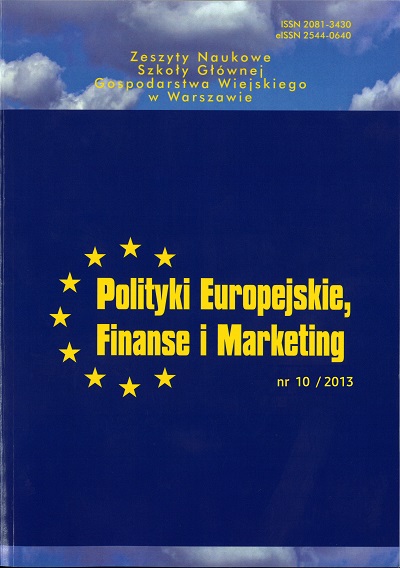Main Article Content
Article Details
Curristine T., Z. Lonti, I. Joumard Improving Public Sector Efficiency: Challenges and Opportunities, OECD Journal on Budgeting, tom 6, nr 7 2007 (Crossref)
Cutaia M., S. Pisani, Output, input and incentives measurement for non-market activity. The case of Italian Revenue Agency, w: 2003 FCSM Conference Papers, Federal Committee on Statistical Methodology, Washington, 2003, s. 96-97
Farrell J., The Measurement of productive efficiency, Journal of the Royal Statistical Society, nr 120, 1957 (Crossref)
Hardt Ł., Maarten de Jong, Budżet zadaniowy jako narzędzie poprawy jakości rządzenia w Polsce, Ernst&Young, Program Sprawne Państwo, Warszawa 2011, s. 39.
Mandl U., A. Dierx, F. Ilzkovitz, The effectiveness and efficiency of public spending, Komisja Europejska, 2008
Moving Towards a Strategic Advisory Approach on the Introduction of Results-oriented Budgeting: What Can Development Cooperation Learn from OECD Experiences?, Deutsche Gesellschaft für Internationale Zusammenarbeit (GIZ) GmbH, Eschborn, 2011, s.19 - 23
Nowe zarządzanie finansami publicznymi w warunkach kryzysu, red. nauk. S. Owsiak, Warszawa 2011
Performance Budgeting in OECD Countries, OECD, 2007
Zaidi A., Sustainability and adequacy of pensions in EU countries. A cross-national perspective, European Centre for Social Welfare Policy and Research, Vienna, September 2010.
Downloads
- Marcin Gąsior, CONSUMERS’ ATTITUDE TOWARDS DEPENDENT AND INDEPENDENT INTERNET SOURCES OF INFORMATION , The Scientific Journal European Policies, Finance and Marketing: No. 10(59) (2013)
You may also start an advanced similarity search for this article.

This work is licensed under a Creative Commons Attribution-NonCommercial 4.0 International License.
All articles published in European Policies, Finance and Marketing are fully open access. In this way, the scientific research results contained in articles published in our journal are available to every reader free of charge - in accordance with the CC BY-NC license (https://creativecommons.org/licenses/by-nc/4.0/).
According to the CC BY-NC license you are free to:
- Share — copy and redistribute the material in any medium or format
- Adapt — remix, transform, and build upon the material
The licensor cannot revoke these freedoms as long as you follow the license terms.
Under the following terms:
- Attribution — You must give appropriate credit , provide a link to the license, and indicate if changes were made . You may do so in any reasonable manner, but not in any way that suggests the licensor endorses you or your use.
- NonCommercial — You may not use the material for commercial purposes .
- No additional restrictions — You may not apply legal terms or technological measures that legally restrict others from doing anything the license permits.
Source: https://creativecommons.org/licenses/by-nc/4.0/deed.en
According to that, the authors retain the copyright and full publishing rights.





